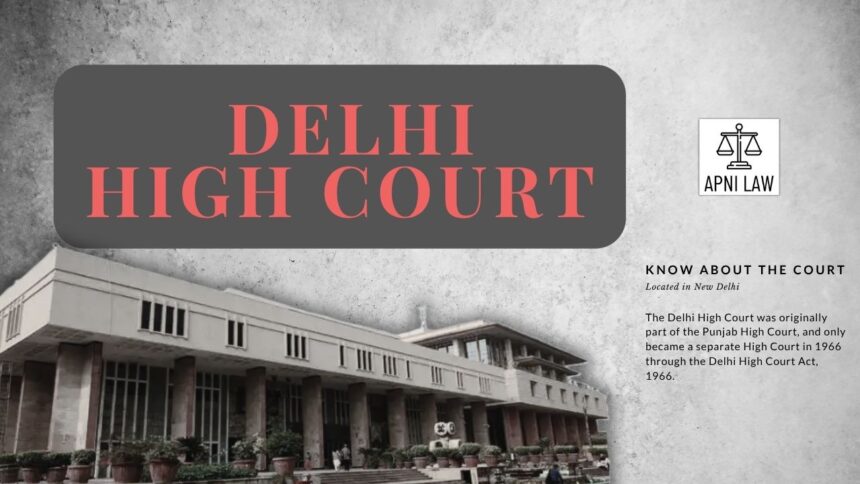Introduction
In Praveen @ Lallu v. State NCT of Delhi, the Delhi High Court ruled that a single accused can be convicted for gang rape under Section 376DA IPC, even if co-accused evade trial. The bench of Justices Prathiba M. Singh and Rajneesh Kumar Gupta held that the escape of co-offenders does not erase the offence. The appeal against conviction was dismissed.
Main Story
The case concerned an appeal filed by Praveen Lallu, convicted under multiple provisions of the Indian Penal Code (IPC) and the POCSO Act. The trial court had sentenced him to life imprisonment under Sections 363, 366, 376DA, 377, 34 IPC and Section 6 of the POCSO Act.
The appellant challenged the gang rape conviction, arguing that such an offence required at least two persons to be convicted. Since the co-accused, Kalu, had not been apprehended, he claimed the charge could not stand.
The High Court rejected this plea. It ruled that gang rape is established if the prosecution proves participation of more than one offender, even if only one faces trial. The court relied on the prosecutrix’s consistent testimony and her clear identification of the appellant through Test Identification Parade (TIP) and court deposition.
The prosecutrix deposed that both accused took her to a jungle on a motorcycle and assaulted her. No contradictions appeared in her cross-examination. The court held her testimony trustworthy and found no evidence of manipulation in the identification process.
Thus, the High Court upheld the life sentence and dismissed the appeal.
Gang rape under Section 376DA IPC (now Section 70 under BNS) is punishable with life imprisonment if committed on a woman under 16. Traditionally, courts interpreted it as requiring multiple offenders. However, jurisprudence has clarified that conviction of a single accused is valid if evidence proves joint participation and others evade trial.
This principle draws on Section 34 IPC (common intention), ensuring that criminal liability does not collapse due to procedural gaps. The POCSO Act further strengthens protections, stressing victim testimony and evidence over technicalities.
The present judgment highlights that courts will not let absconding offenders weaken justice in sexual assault cases. It reinforces the evidentiary value of reliable victim statements and procedural safeguards like TIP.
Implication
The Delhi High Court ruling strengthens prosecution of sexual offences. It ensures victims are not denied justice simply because some perpetrators evade trial. For lawyers and prosecutors, it underscores the importance of presenting clear victim testimony and identification evidence. For citizens, it signals that the justice system will uphold accountability in gang rape cases, regardless of missing co-accused.
For any specific query call at +91 – 8569843472








